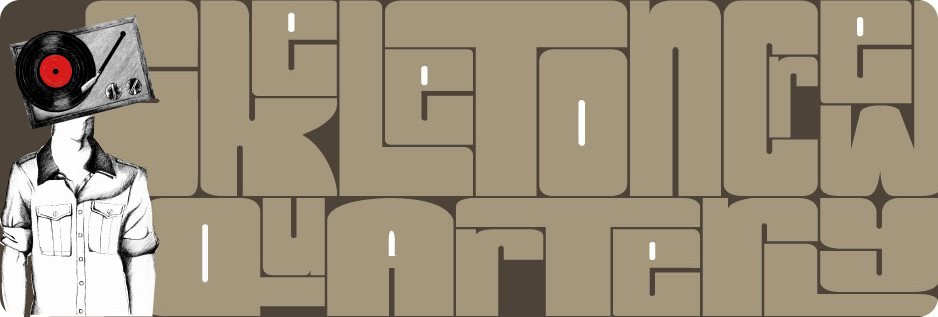Taking into
consideration my awareness of a quality Evening Hymns show, plus the way Spirit
Guides floored me in late 2009 – skyrocketing to the #4 spot on SCQ’s TopTwenty Albums list – I was unusually indifferent about catching the
Toronto-based folk troupe on their way across Canada. By no coincidence, I wore
the same soft wince on my face when I opted to pass on reviewing Evening Hymns’
third full-length this past summer. While a worthy successor to Spirit Guides
in virtually every way, Spectral Dusk was so fundamentally knotted in the death
of songwriter Jonas Bonnetta’s father that critical input seemed unwelcome.
Hell, I’d had enough trouble finding opportune times to even play such a
painstakingly personal account, let alone analyze it.
So I had no
misapprehensions that tonight’s show would be a summoning of ghosts, which
after a long day at work isn’t exactly how I like to kick back. On the way into
The Mansion House, I envisioned Bonnetta telling teary-eyed anecdotes while his
bandmates looked at their shoes, solemn as in a funeral. And while all of that
pretty much came to be, the assumed tipping point where an emotional deluge
would trigger discomfort among audience members never materialized. Quite the
opposite, Bonnetta – with his soft wit and disarmingly natural stage presence –
put a spell over the crowd, alternating between devastation, catharsis and,
ultimately, celebration.
Before Bonnetta had
even promised a “massive bummer”, the first several rows of people abruptly
settled on The Mansion House’s wooden floorboards in a touching show of respect.
And the Evening Hymns four-piece, rounded out by rich vocal harmonies and
careful embellishments (including accordion and trumpet!), returned the favor
with a slow but life affirming set. “Arrows” ditched its percussive element for
methodical strumming while “You and Jake” surrendered the subtle bombast ascribed
to on disc for a gentler meditation. If these takes lacked some of the teeth of
the recorded versions, Bonnetta’s investment in the material supplied adequate
doses of intensity, his eyes possessed beneath tosses of hair. Even when addressing
his father’s presence as an inspiration behind each song, he spoke lightly,
eliciting laughs despite his voice choking up, and considerably deepened
Spectral Dusk’s narrative.
On the heels of an
encouraging crowd and the band’s relaxed banter (which, at one point turned the
testing of an incessantly buzzing guitar into a series of lightsaber jokes),
Evening Hymns’ set gathered some serious momentum in its final songs. A cutting
performance of “Cabin In the Burn” and their famously propulsive live version
of “Mountain Song” provided adrenaline before the stillness of “Spectral Dusk”,
which Bonnetta performed alone. As a highlight of the show, this closing number
is obviously something I’d like to attempt describing. But much like the tragic
nature of Evening Hymns’ latest album, Bonnetta’s live approach to “Spectral
Dusk” is too pure and impassioned for my words to blemish. As Bonnetta himself
admitted, now is a strange time to be Evening Hymns, each night wrestling such
overwhelmingly personal and potentially destructive subject matter. That makes
now a strange time to see Evening Hymns as well, but an unforgettable time
indeed. Don’t miss it.





